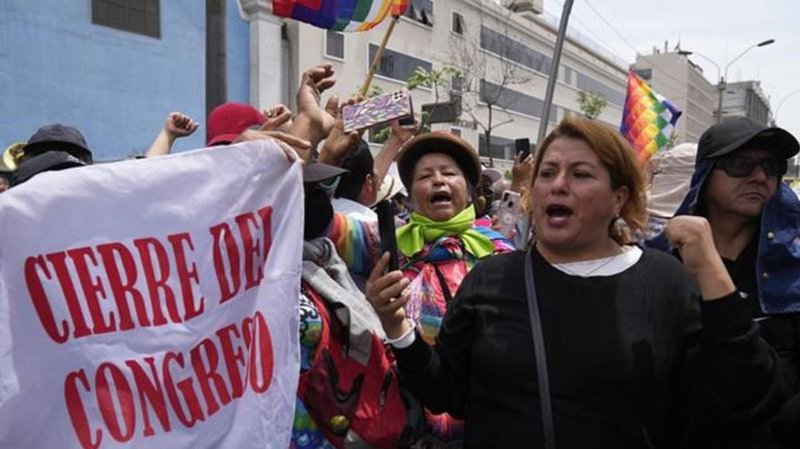
Peru’s president dissolves Congress, which then ousts him
LIMA, Peru (AP) — Peruvian President Pedro Castillo dissolved the nation’s Congress on Wednesday and called for new legislative elections, trying to beat lawmakers to the punch as they prepared a third attempt to remove him. Congress then voted to oust him and appointed his vice president to lead the nation.
The national ombudsman’s office, said in a statement before the congressional vote that after years of democracy, Peru is in the midst of a constitutional collapse “that can’t be called anything but a coup.”
THIS IS A BREAKING NEWS UPDATE. AP’s earlier story follows below.
LIMA, Peru (AP) — Peruvian President Pedro Castillo dissolved the nation’s Congress on Wednesday and called for new legislative elections, beating lawmakers to the punch as they prepared to debate a third attempt to remove him from office. The national ombudsman’s office called it a coup.


